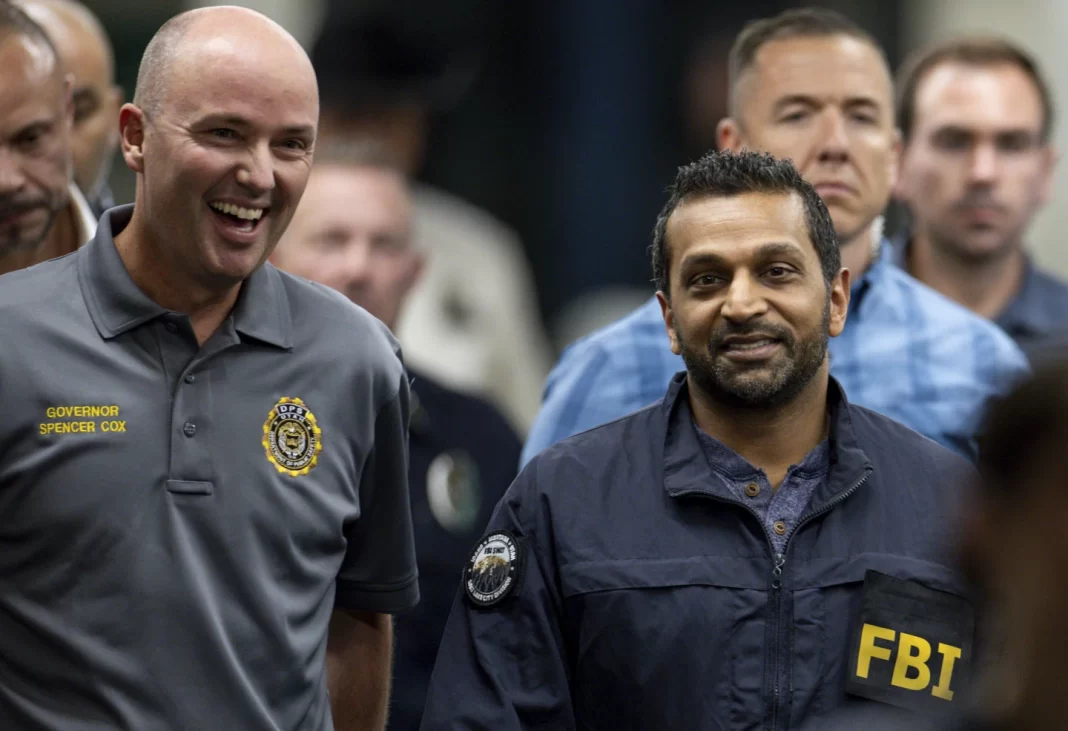Hours after the assassination of conservative activist Charlie Kirk, FBI Director Kash Patel declared online that “the subject” in the killing was in custody. The shooter was not. The two men who had been detained were quickly released, and Utah officials acknowledged that the gunman remained at large.
The false assurance was more than a slip. It spotlighted the high-stakes uncertainty surrounding Patel’s leadership of the bureau when its credibility — and his own — are under extraordinary pressure.
Patel now approaches congressional oversight hearings this coming week facing not just questions about that investigation but broader doubts about whether he can stabilize a federal law enforcement agency fragmented by political fights and internal upheaval.
Democrats are poised to press Patel on a purge of senior executives that has prompted a lawsuit, his pursuit of President Donald Trump’s grievances long after the Russia investigation ended, and a realignment of resources that has prioritized the fight against illegal immigration and street crime even though the agency has for decades been defined by its work on complicated threats like counterintelligence and public corruption.
That’s in addition to questions about the handling of files from the Jeffrey Epstein sex trafficking case, the addition of a co-deputy director to serve alongside Dan Bongino, and the use of polygraphs on some agents in recent months to identify sources of leaks. Republicans, meanwhile, are likely to rally to his defense or redirect the spotlight toward the bureau’s critics.
The hearings will offer Patel his most consequential stage yet, and perhaps the clearest test of whether he can convince the country that the FBI, under his watch, can avoid compounding its mistakes in a time of political violence and deepening distrust.
“Because of the skepticism that some members of the Senate have had and still have, it’s extremely important that he perform very well at these oversight hearings” on Tuesday and Wednesday, said Gregory Brower, a former FBI executive who served as its top congressional affairs official.
The FBI declined to comment about Patel’s coming testimony to the committee.
He claimed the subject was ‘in custody’
Kirk’s killing was always going to be a closely scrutinized investigation, not only because it was the latest burst of political violence inside the United States but also because of Kirk’s friendships with Trump, Patel and other administration figures and allies.
While agents from Salt Lake City investigated, Patel’s account on the social media platform X posted that “the subject for the horrific shooting today that took the life of Charlie Kirk is now in custody.” Utah Gov. Spencer Cox said at a near-contemporaneous news conference that “Whoever did this, we will find you,” suggesting authorities were still searching. Patel soon after posted that the person in custody had been released.
“That does not deliver the message that you want the public to hear,” said Chris O’Leary, a retired FBI counterterrorism executive. “It had the opposite effect. People start to wonder what is going on. This looks like the Keystone Cops and it continues to get worse.”
The next day, a scheduled afternoon news conference was canceled for “rapid developments” as Patel and Bongino flew to Utah. It was held instead in the evening. Patel appeared but did not speak.
As the search stretched on for over a day, Patel angrily vented to FBI personnel Thursday about what he perceived as a failure to keep him informed, including that he was not quickly shown a photograph of the suspected shooter. That’s according to two people familiar with the matter who were not authorized to discuss it by name and spoke on condition of anonymity to The Associated Press. The New York Times earlier reported details of the call.
Asked about the scrutiny of his performance, the FBI issued a statement saying that it had worked with local law enforcement to bring the suspected shooter, Tyler Robinson, to justice and “will continue to be transparent with the American people.”
Patel’s overall response did not go unnoticed in conservative circles. One prominent strategist, Christopher Rufo, posted on X that it was “time for Republicans to assess whether Kash Patel is the right man to run the FBI.”
Patel, at a news conference Friday and again on social media Saturday, touted his oversight of the investigation, highlighting his decision to publicize photographs of Robinson as a key break in the investigation. Robinson’s father recognized him from the photos, setting off a chain of events that resulted in the son turning himself in.
Patel received support Saturday from Trump. He reposted on X a post from a Fox News Channel journalist who said she had spoken with Trump and that the president had said that Patel and the FBI “have done a great job.”
Then there’s the personnel purge
On the same day Kirk was killed, Patel faced a separate problem: a lawsuit from three FBI senior executives fired in an August purge that wiped away decades of institutional experience and that they characterized as a Trump administration retribution campaign.
Among them was Brian Driscoll, who as acting FBI director in the early days of the Trump administration resisted Justice Department demands for names of agents who investigated the Jan. 6, 2021, riot at the Capitol. Driscoll alleged in the lawsuit that he was let go following a clash with Patel over administration demands to fire an FBI pilot who had been wrongly identified on social media as the case agent in the classified documents investigation of Trump.
The lawsuit quotes Patel as having told Driscoll his job depended on firing people the White House wanted gone. The FBI has declined to comment on the lawsuit.
The other plaintiffs are Spencer Evans, a former top agent in Las Vegas whose termination letter cited a “lack of reasonableness and overzealousness” in implementing COVID-19 policies while serving as a human resources official — a claim his lawyers call false — and Steve Jensen, who helped oversee FBI investigations into the Jan. 6. Capitol riot.
The upheaval continues a trend that began even before Patel took over, when more than a half-dozen of the bureau’s most senior executives were forced out under a Justice Department rationale that they could not be “trusted” to implement Trump’s agenda.
There’s since been significant turnover in leadership at the FBI’s 55 field offices. Some left because of promotions and planned retirements, but others because of ultimatums to accept new assignments or resign. The head of the Salt Lake City office, an experienced counterterrorism investigator, was pushed out of her position weeks before Kirk was killed at a Utah college, said people familiar with the move.
In July, an agent based in Norfolk, Virginia, Michael Feinberg, authored a first-person account saying he was told to brace for a demotion and a polygraph exam because of his friendship with Peter Strzok , a lead FBI agent in the investigation into ties between Russia and Trump’s 2016 campaign fired over derogatory text messages sent about Trump. Feinberg resigned instead.




